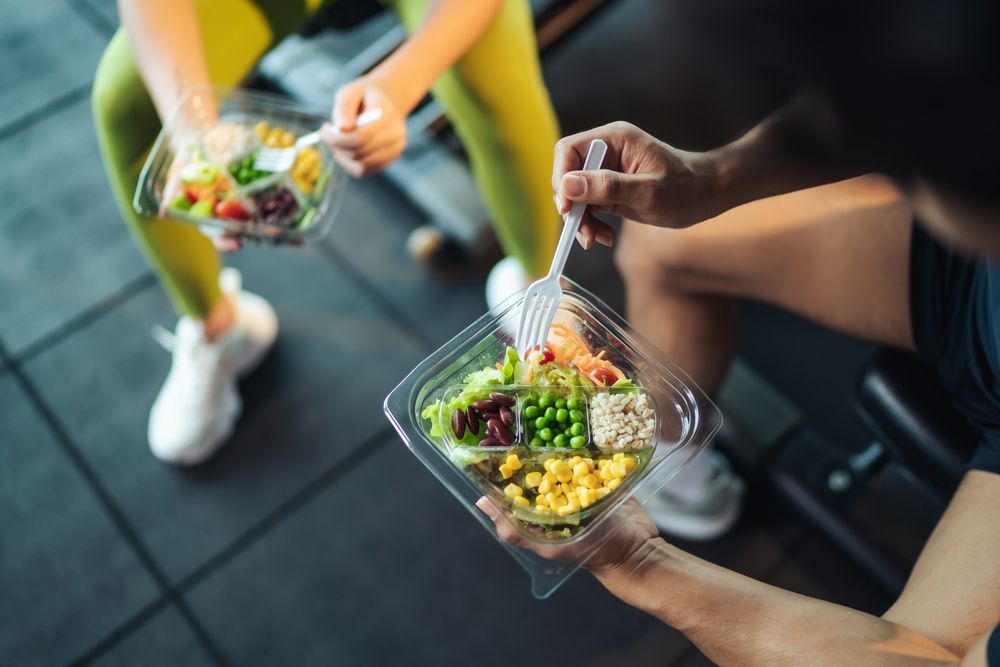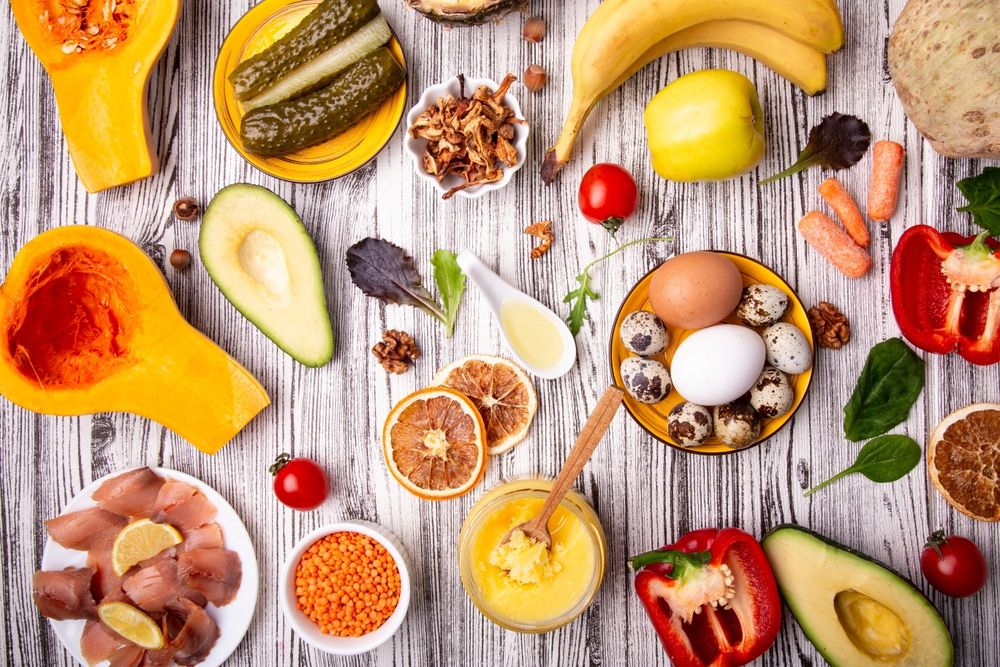
"Protein is certainly in the spotlight these days, making its way into everything from protein-enriched pastas, breads, and yogurts to the classic powders, bars, and shakes. And it’s no surprise—protein keeps you feeling fuller for longer, supports weight loss goals, and plays a vital role in building and maintaining lean muscle. But how much protein do you actually need?
In this guide, I'll help you figure out your personal protein requirements and determine if 150 grams per day is the right goal for you. Plus, I'll walk you through creating a balanced meal plan that can deliver anywhere from 100 to 150 grams of protein. Use this as a flexible guide to craft meals that fit your unique needs. After all, nutrition isn’t one-size-fits-all!"
How Much Protein Do You Need Per Day & Is 150 Grams Right for You?
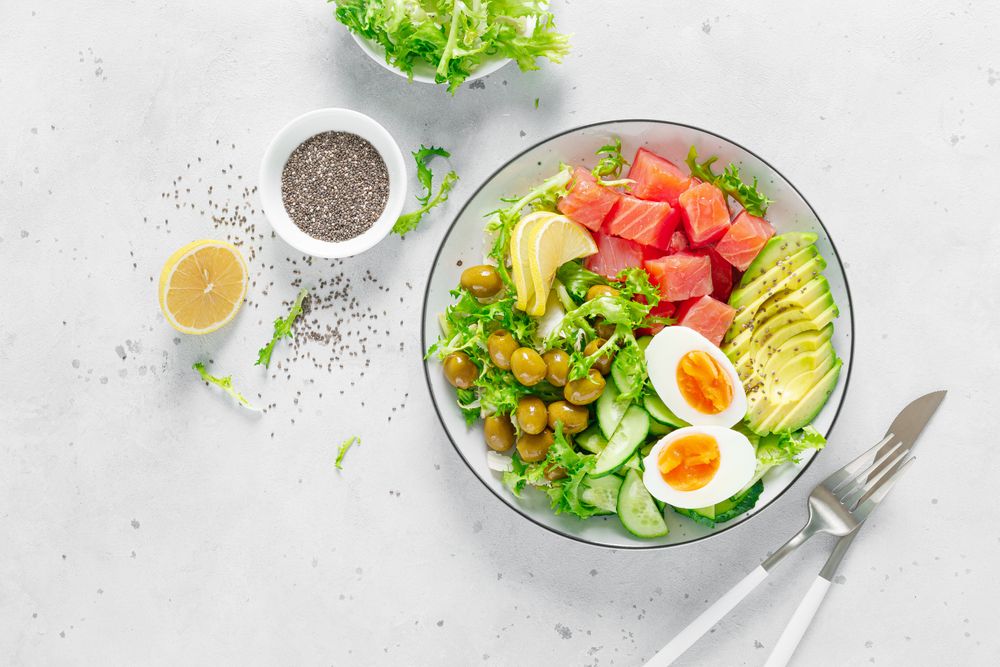
"Protein needs are unique to each person, influenced by factors like age, gender, activity level, and health goals. The Recommended Dietary Allowance (RDA) provides a baseline for healthy individuals at 0.8 grams of protein per kilogram of body weight to prevent muscle loss. For example, a 165-pound person would need around 60 grams of protein daily according to the RDA.
However, the RDA doesn't account for exercise or specific fitness goals, such as muscle building or fat loss. Many health experts, myself included, recommend that regular exercisers—those meeting or exceeding 150 minutes of moderate or 75 minutes of vigorous activity weekly—should aim for more protein. For those who train five to six days per week, including strength workouts, a range of 1.4 to 2 grams of protein per kilogram of body weight is often more appropriate.
To illustrate, a 235-pound person engaging in moderate exercise three to five times a week might need roughly 150 grams of protein (based on the 1.4 grams per kilogram guideline). Similarly, a 165-pound person who trains intensely could also benefit from about 150 grams, using the higher end of 2 grams per kilogram.
As you can see, protein needs vary significantly based on weight and activity level, and may approach the 150-gram mark for many active individuals. But more protein isn’t always better. Overloading protein in a single meal may not be beneficial, as there’s a limit to how much your body can use effectively at once. Let's explore that balance further."
How Much Protein Should You Eat Per Meal?
While protein is beneficial for many health and fitness goals, more isn't always better in a single sitting. Just like other macronutrients, any excess protein your body doesn’t use will be stored as fat, which can ultimately lead to weight gain.
Your body can metabolize only about 0.4 to 0.55 grams of protein per kilogram of body weight per meal. For someone weighing 165 pounds, this equates to around 30 to 41 grams of protein per meal. So, if you’re consuming 50 grams of protein at once, your body may not fully utilize it.
Rather than aiming for the highest protein content in each meal, try to distribute your protein intake according to your daily needs. If you’re targeting 150 grams per day, consider splitting it across three main meals with 30 to 40 grams each, supplemented by two to three snacks with 5 to 20 grams of protein. This balanced approach helps you reach your goals without overloading any single meal.
Finding the right balance for your meals and snacks can take a little practice, but I’m here to make it easy. I’ll share options for each eating occasion, so whether you need a high-protein breakfast post-workout or a lighter evening snack, you can meet your protein needs while supporting your overall health goals.
The Best High-Protein Foods
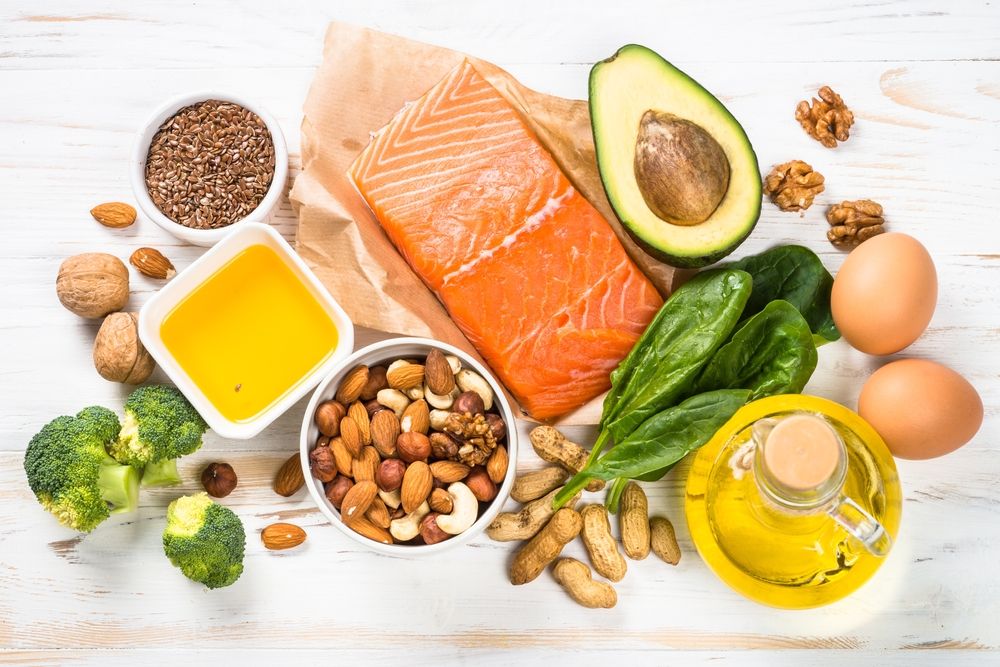
"Choosing foods rich in protein with minimal added ingredients is an excellent foundation for building nutritious meals. While protein bars and shakes can be convenient in a pinch, they shouldn't be your primary source for meeting daily protein goals.
There are plenty of whole-food options at your local market (and likely in your kitchen) that not only offer quality protein but also provide additional essential nutrients, like fiber, potassium, calcium, and vitamin D—nutrients many people often lack. For example, pulses and legumes like beans and lentils are excellent plant-based protein sources that pack dietary fiber, while dairy products like milk or fortified soy milk contribute valuable calcium, vitamin D, and potassium.
These foods may not be the first to come to mind as "protein powerhouses," but they are highly effective in supporting a balanced diet. In addition to lean meats, consider these dietitian-recommended high-protein options:
- Greek yogurt
- Cottage cheese
- Chicken breast
- Turkey
- Tuna
- Sardines
- Salmon
- Tofu
- Edamame
- Tempeh
- Canned beans
- Lentils
- Chia seeds
- Pumpkin seeds
150 Grams of Protein Per Day: Meal Plan Examples
Whether you’re aiming for 150 grams of protein or a bit less, these sample meal ideas can help inspire you in the kitchen! If you work out, remember to adjust your protein intake to cover the recovery period (ideally within 30 minutes after finishing). Aim for 0.2 to 0.5 grams of protein per kilogram of body weight post-workout, which translates to around 15 to 37 grams for someone weighing 165 pounds. If it’s more practical, have a post-workout meal instead of a snack and save the snack for later.
Now, let’s explore some satisfying protein pairings you can enjoy morning, noon, and night to help you meet your goals!"
Breakfast (30 to 40g protein)
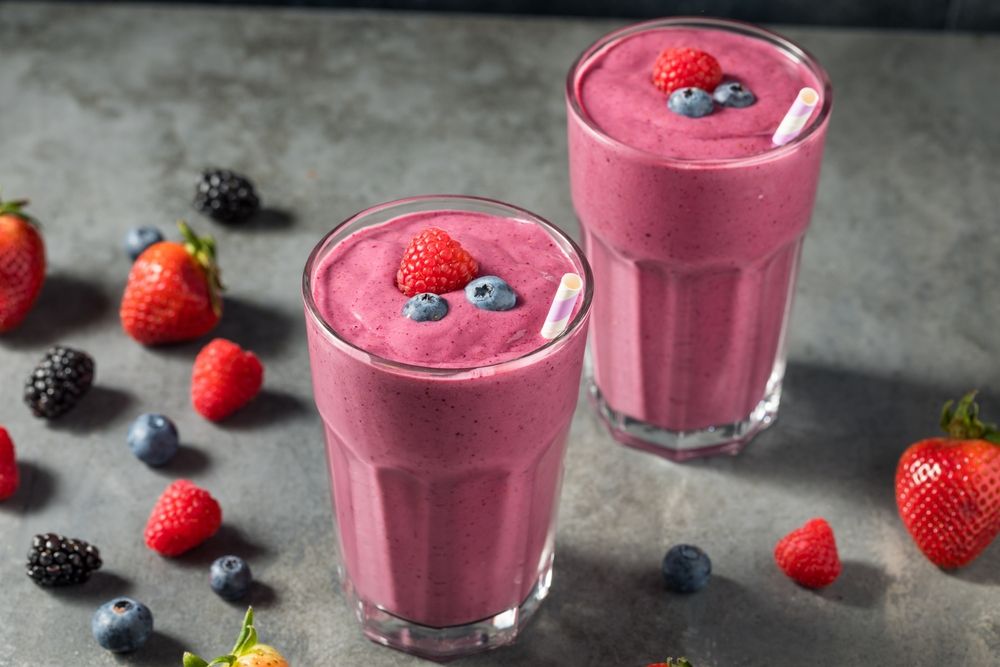
Spinach & Feta Omelet with Turkey Sausage
- 1 large egg (6g protein)
- ½ cup egg whites (13g protein)
- 2 oz turkey sausage (14g protein)
- 1 oz crumbled feta cheese (4g protein)
- 1 cup spinach (1g protein)
Total: ~38g protein
Plant-Based PB&J Protein Smoothie
- 1 cup plain, nonfat Greek yogurt (25g protein)
- 1 cup pea or soy milk (9g protein)
- 1 cup frozen strawberries (1g protein)
- ½ medium frozen banana (0.5g protein)
- 1 tbsp peanut butter (4g protein)
Total: ~39.5g protein
Protein-Packed Chia Pudding
- ½ cup soy milk (4g protein)
- 3 tbsp chia seeds (5g protein)
- 1 scoop soy protein powder (25g protein)
- 1 tsp honey (0g protein)
- 0.5 oz shelled pistachios (3g protein)
- ¼ cup pomegranate arils (0g protein)
Total: ~37g protein
Morning Snack (5 to 20g protein)
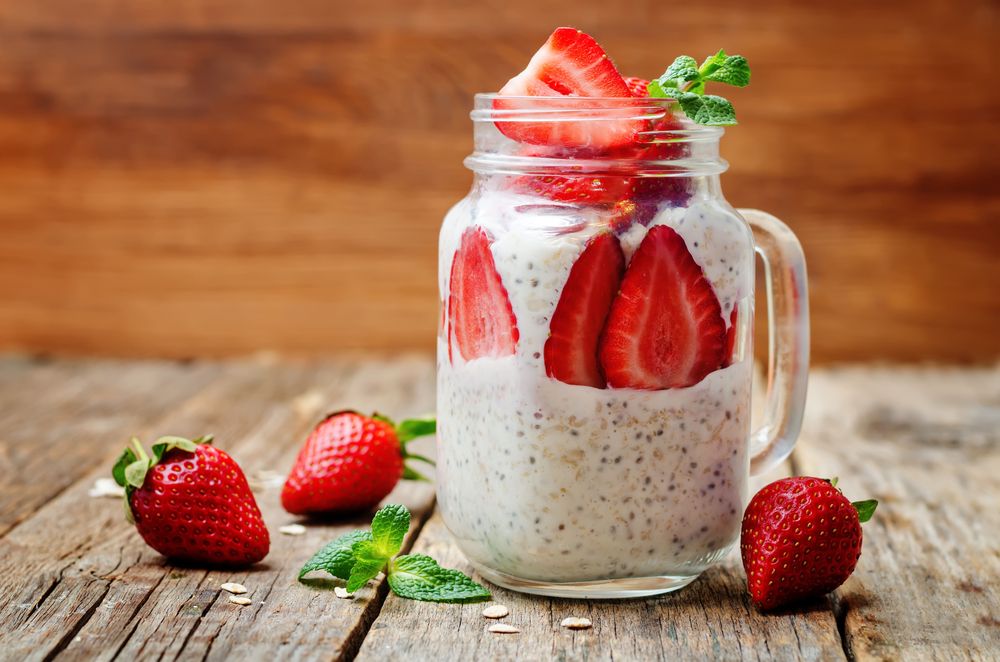
Greek Yogurt Parfait
- ½ cup plain, nonfat Greek yogurt (12.5g protein)
- ¼ cup granola (3g protein)
- ½ tbsp peanut butter (2g protein)
- ½ cup raspberries (0.5g protein)
Total: ~18g protein
Nut, Seed, & Fruit Trail Mix
- 1 oz shelled pistachios (6g protein)
- 0.5 oz shelled pumpkin seeds (4g protein)
- ¼ cup golden seedless raisins (1g protein)
Total: ~11g protein
Homemade Pumpkin Bread + Latte
- 1 slice whole wheat pumpkin bread (6g protein)
- 8 oz nonfat milk latte (7g protein)
Total: ~13g protein
Lunch (30 to 40g protein)
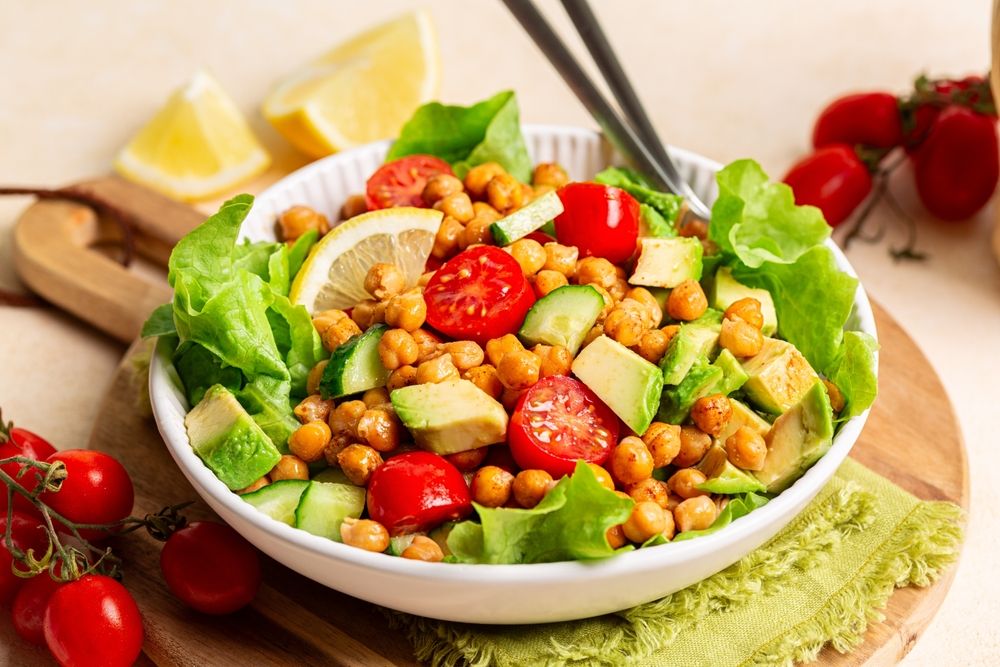
Southwestern Chicken Salad
- ½ cup chopped grilled chicken (21g protein)
- 2 cups romaine lettuce (1g protein)
- ⅓ medium avocado (1g protein)
- 1 cup grape tomatoes (0.5g protein)
- 1 oz shredded cheddar cheese (7g protein)
- 2 tbsp yogurt Ranch dressing (1g protein)
Total: ~31.5g protein
DIY Lunchable with Deli Turkey, Cheese, Hard-Boiled Egg & Veggies
- 1 oz shelled pistachios (6g protein)
- 1 large hard-boiled egg (6g protein)
- 2 oz deli turkey (12g protein)
- 1 oz cheddar cheese (7g protein)
- ⅓ medium avocado (1g protein)
- 1 cup grape tomatoes (0.5g protein)
Total: ~32.5g protein
Chickpea, Spinach & Feta Wrap with Protein Chips
- 1 high-protein wrap (11g protein)
- 2 tbsp roasted red pepper hummus (2g protein)
- ½ cup chickpeas (7g protein)
- 1 oz crumbled feta cheese (4g protein)
- 1 cup spinach (1g protein)
- 0.5 oz protein chips (11g protein)
Total: ~36g protein
Afternoon Snack (5 to 20g protein)
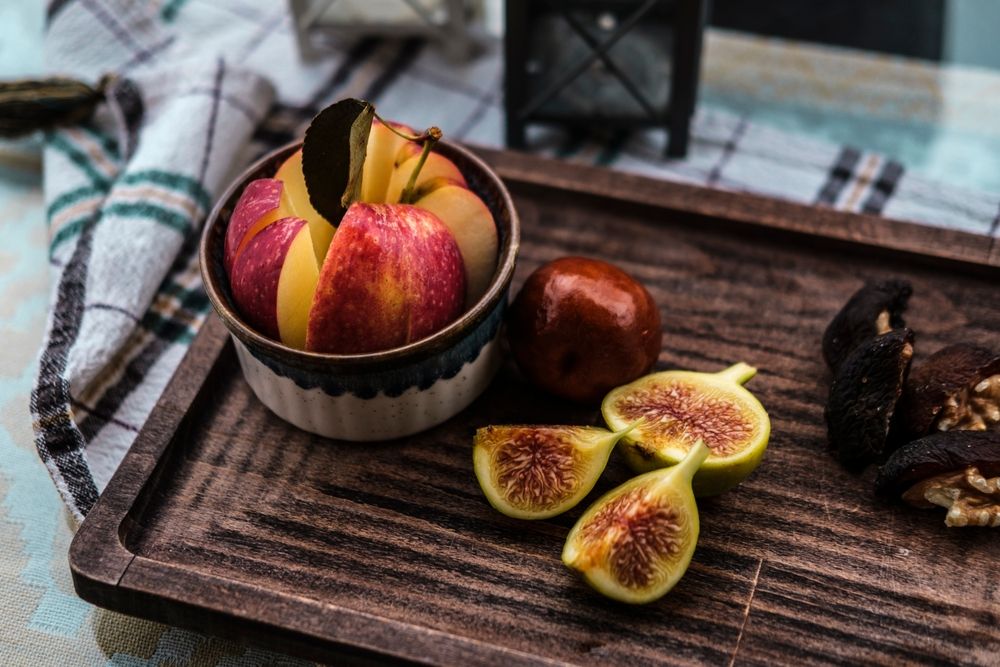
Apples with Peanut Butter and Milk
- 2 tbsp peanut butter (8g protein)
- 1 medium apple (0g protein)
- 1 cup soy milk (8g protein)
Total: ~16g protein
Cherries with Protein Shake
- 1 cup sweet cherries (1.5g protein)
- 1 protein shake (20g protein)
Total: ~21.5g protein
Cucumbers with Greek Yogurt Tzatziki Dip
- 2 baby cucumbers, sliced (0.5g protein)
- ½ cup Greek yogurt tzatziki dip (12.5g protein)
Total: ~13g protein
Dinner (30 to 40g protein)
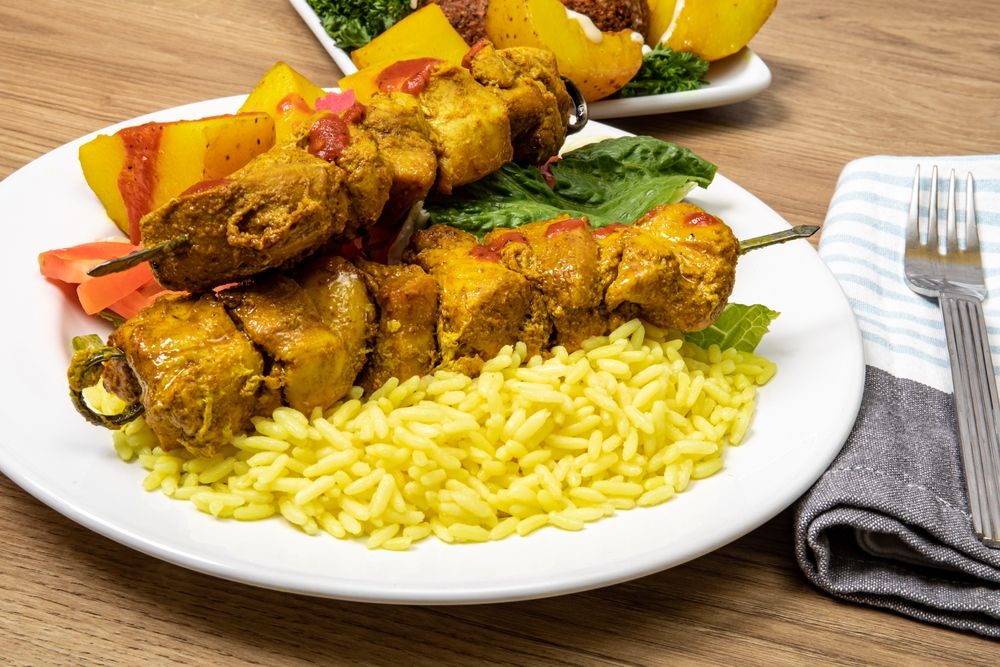
Baked Salmon with Roasted Potatoes & Asparagus
- 6 oz baked salmon (30g protein)
- ½ cup roasted potatoes (1g protein)
- 4 spears roasted asparagus (2g protein)
Total: ~33g protein
Edamame Bowl with Thai Peanut Dressing
- 1 cup edamame (18.5g protein)
- 1 cup cooked quinoa (8g protein)
- ½ cup cooked broccoli (0.5g protein)
- 1 oz roasted peanuts (7g protein)
- 2 tbsp peanut dressing (1g protein)
Total: ~35g protein
Grilled Flank Steak Tacos
- 2 corn tortillas (3g protein)
- 4 oz grilled flank steak (24g protein)
- ⅓ medium avocado (1g protein)
- ½ cup salsa (2g protein)
Total: ~30g protein
Dessert/Post-Dinner Snack (5 to 20g protein)
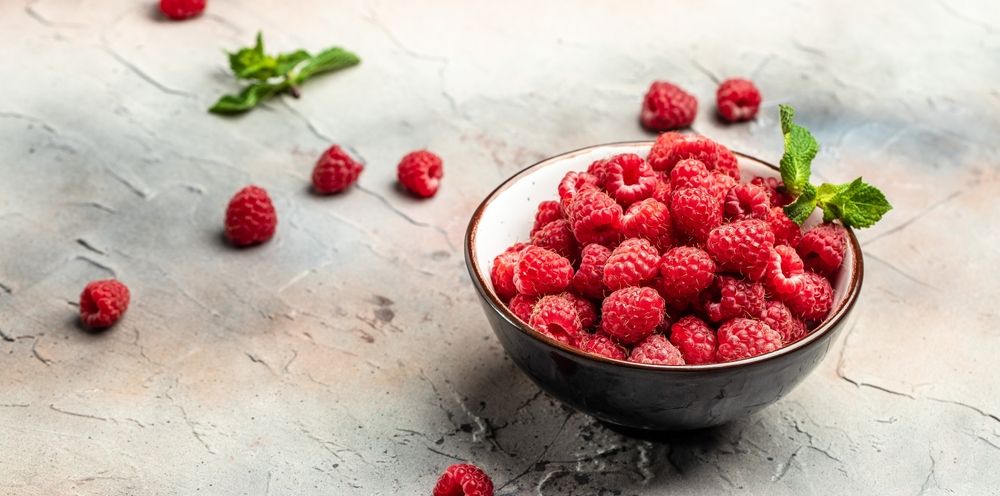
Cheezy Popcorn with Nuts
- 2 cups air-popped popcorn (2g protein)
- 2 tbsp nutritional yeast (3g protein)
- 1 oz salted cashews (5g protein)
Total: ~10g protein
Cottage Cheese with Raspberries
- ½ cup low-fat cottage cheese (14g protein)
- ½ oz dark chocolate (0.5g protein)
- ½ cup raspberries (0.5g protein)
Total: ~15g protein
Milk with Whole-Grain Cereal
- 1 cup nonfat milk (9g protein)
- 1 cup whole-grain, high-fiber cereal (3g protein)
Total: ~12g protein
Bottom Line
Protein requirements differ from person to person, influenced by age, gender, activity level, and overall health profile. While some may benefit from a daily intake of 150 grams, that amount may not be suitable for everyone. Consulting with a registered dietitian nutritionist is the best way to ensure you’re meeting your unique protein needs while also getting a balanced intake of other essential nutrients.

